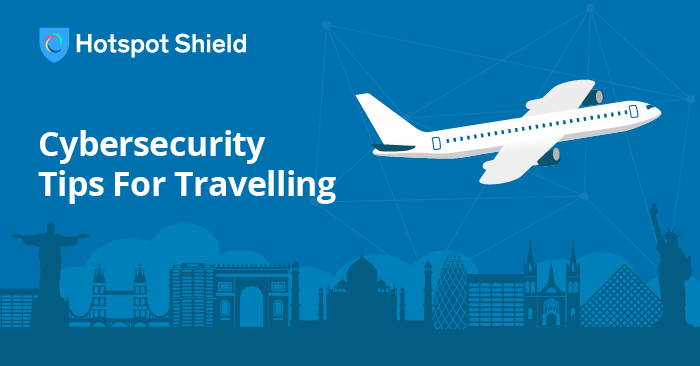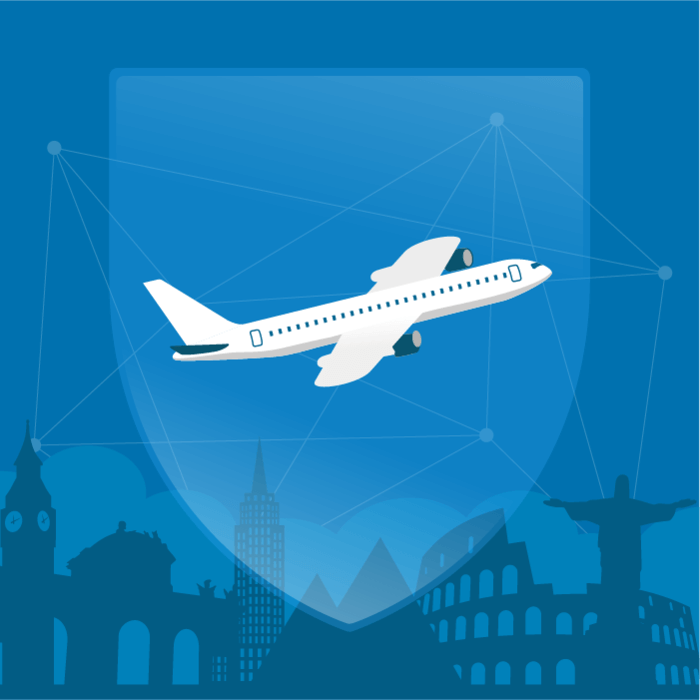How to get a Finnish IP address
The easiest way to improve your digital privacy is to switch your IP address using a VPN. We’ll …

Traveling is good for both your body and your mind. It’s one of the best things you can do to loosen up and free yourself from the stresses of everyday life. However, it also comes with significant risk to your online security.
That doesn’t have to be the case, though. There are plenty of ways to keep yourself and your information safe whenever you go abroad. So, if you’re planning to take a trip soon, here are five cybersecurity travel tips you should consider.
The more online devices you have with you, the riskier it becomes for your cybersecurity. This is why it’s ideal to pack light in terms of which devices you choose to carry. If you can, stick with the most basic of gadgets and just bring your smartphone. Keep it handy because it’s a useful tool to have in an emergency situation.
Plus, traveling is all about unwinding and disconnecting from the world, even if just for a few moments. These would be very difficult to achieve if you were constantly online during your trip.
No matter how many devices you bring with you, what’s important is that you keep them locked with fingerprint IDs, passwords, or pins—basically whatever is applicable to your specific device.
Certain devices also enable to lock specific programs, and you should do so for an added layer of protection. There is also a multitude of software you can download that allow you to lock whatever app you want.
Wherever you are in the world, there will always be cybercriminals lurking around. When you’re on foreign soil, a VPN is your best friend so make sure you install it on all your devices.
A VPN encrypts your data to secure your information and make you anonymous when you go online. With a high-quality VPN, hackers won’t be able to detect your presence and access your information.
Don’t be an easy target for cybercriminals who like to scam and prey on tourists by always choosing the safest and most secure option possible. This means no logging on to your personal accounts in internet cafes and using the free public Wi-Fi at the restaurant you’re currently at.
Sharing their current location on social media and other online platforms is a common practice among travelers, but it’s actually very dangerous. How so, you ask? Letting people know exactly where you are is also a way of informing criminals that your house is most likely unguarded and that your personal belongings will be easy to take. This also applies to your hotel room in the country you’re visiting.
 Do you want to know how to maintain your cybersecurity when travelling? The answer is Hotspot Shield, a free VPN designed with high-level encryption protocols to make sure that your device and the data on it are 100% secure at all times. Use Hotspot Shield so that you don’t have to worry about hackers trying to access your information during your travels.
Do you want to know how to maintain your cybersecurity when travelling? The answer is Hotspot Shield, a free VPN designed with high-level encryption protocols to make sure that your device and the data on it are 100% secure at all times. Use Hotspot Shield so that you don’t have to worry about hackers trying to access your information during your travels.
Secure your trip. Visit our website and download Hotspot Shield VPN today. It’s available for free on Windows, Mac OS, Android, and iOS. For more cybersecurity advice, check out our blog.
